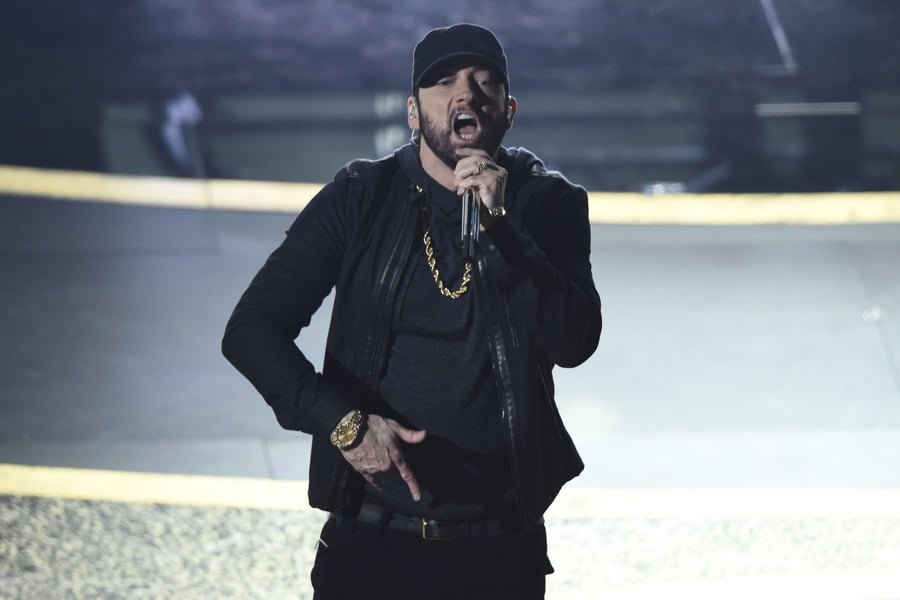The 50 Greatest Eminem Songs
The best from the bloody, bombastic, brilliant career of the hip-hop troublemaker

Though he’s been a multiplatinum, Grammy-winning star for over 20 years, Eminem is not an unequivocally triumphant figure, either within pop music or within his own mind. Just listen to the vulnerability and self-doubt on his recent single “Walk on Water.” The Detroit rapper continues to make art about how people are driven crazy by weakness and lack. It’s just now he’s finding it harder to joke about the darkness that has always fueled his best work.
Some fans celebrate only the funny “Slim Shady,” when the musical comedy is quality controlled by executive producer Dr. Dre. They eschew the more viciously somber, rock-leaning character studies helmed by Em and his longtime Detroit collaborators Jeff and Mark Bass. But spend serious time with Eminem’s entire catalogue and you quickly realize that those two sides of his music are inextricable, one always informing the other.
When Eminem raps about violent, tragicomic death, he is furthering a grand murder-ballad tradition in folk and blues music. He’s also, on occasion, regurgitating grotesque sexist, homophobic stereotypes. But for a poor, white, emotionally unstable MC to excel in hip-hop and not be viewed as a villainous buffoon, he must possess prodigious artistic gifts and a real commitment to personal transparency. Throughout our list of his 50 essential songs (originally published in 2017 and updated on the eve of his 2022 Super Bowl appearance), Eminem fearlessly displays that devotion to task and proves why he’s been one of pop music’s most fascinating, complex characters.




















































































